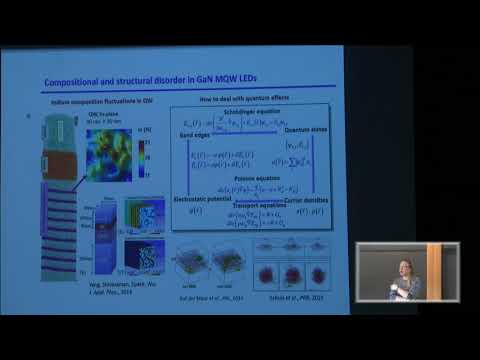Abstract
Complexity of the geometry, randomness of the potential, and many other irregularities of the system can cause powerful, albeit quite different, manifestations of localization: a phenomenon of confinement of waves, or eigenfunctions, to a small portion of the original domain. In the present talk we show that behind a possibly disordered system there exists a clear structure, referred to as a landscape function, which predicts the location and shape of the localized eigenfunctions, a pattern of their exponential decay, and delivers accurate bounds for the corresponding eigenvalues in the range where, for instance, Weyl law notoriously fails. We will discuss main features of this structure universally relevant for all elliptic operators, as well as specific applications to the Schrodinger operator with random potential and to the Poisson-Schrodinger drift-diffusion system.
